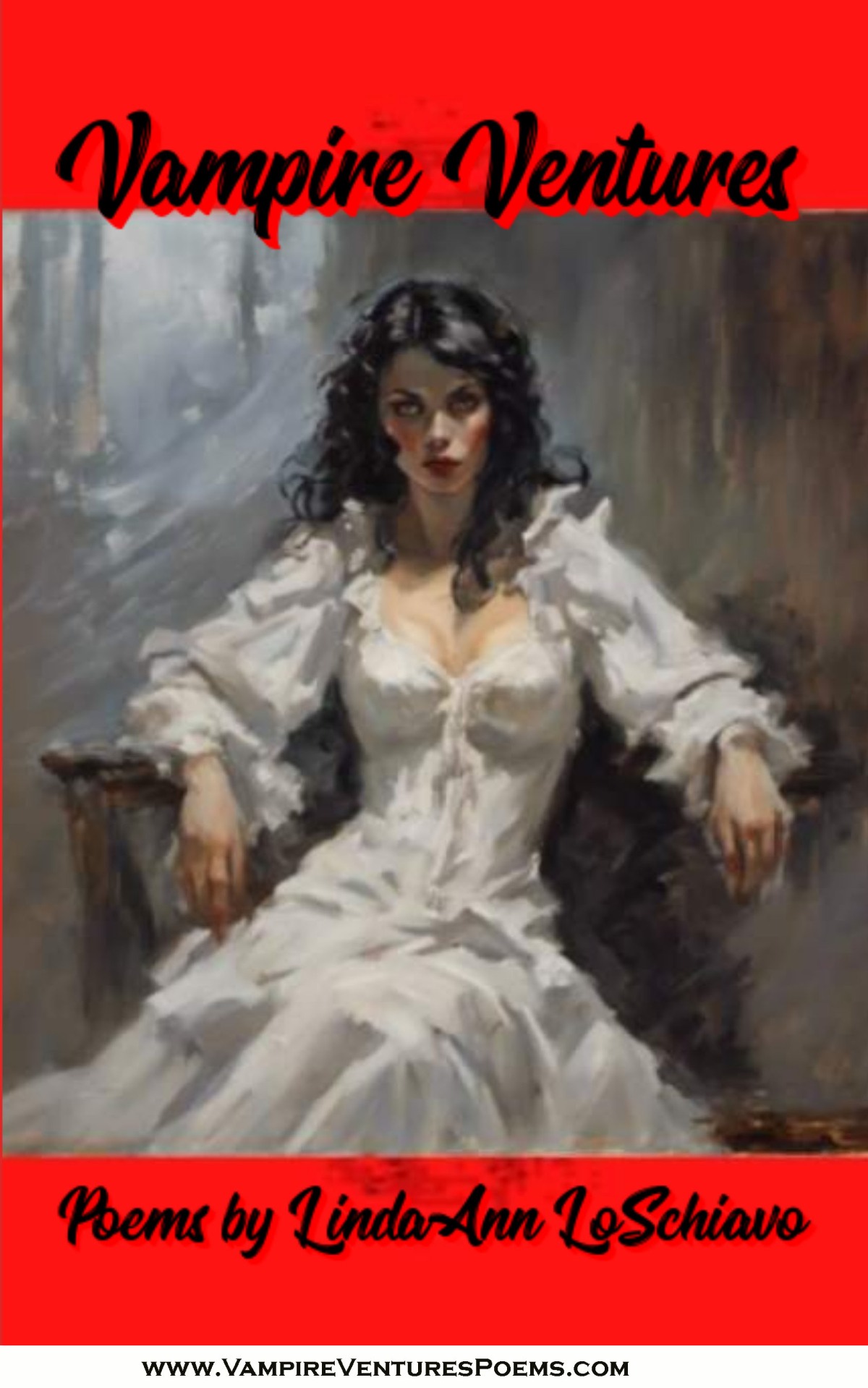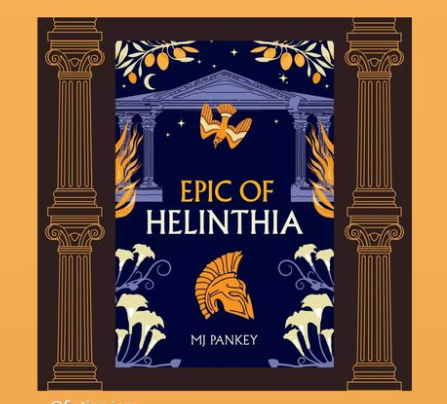There is an appropriate voluptuousness to LindaAnn LoSchiavo’s book Vampire Ventures: Poems. Many modern poetry books have an artful simplicity about them, but LoSchiavo abandons that convention to take on a Gothic and vaguely Victorian quality.
Usually, poets find a form that suits them best and stick with it, but LoSchiavo adopts an irregular cadence in this poetry collection. On one page you have a blank verse poem and on the next, a haiku. I consulted the description several times to confirm this wasn’t an anthology. LoSchiavo has a unique breadth and talent that I haven’t seen in many poetic anthologies.
There is an irregular cadence to the poems which may be off-putting. I think it is intentional to make the reader feel a sense of discomfort as you sit down to read each poem in quick succession. There is a poem to suit everyone’s tastes and if you love vampires, I think you have to give this book a try, but don’t just take my word for it!
I had the opportunity to talk to the mastermind behind this collection and some of her responses may pleasantly surprise you

How would you describe your poetry?
I’m a narrative poet and a formalist. I favor “fixed forms” and this also encompasses blank verse (unrhymed iambic pentameter), Golden Shovels, Centos, dramatic monologues, etc.. New Formalism is a late 20th- and early 21st-century movement in American poetry that has promoted a return to metrical, rhymed verse, and narrative poetry.
Let’s start with the idea of poetry as a practice. Is it something you feel you need to do regularly? What do you use to write it all down on? Your phone? A notebook?
I write every day. I have so many ideas that I’m always working on something new, or there is something I am expanding/reworking like a poem that will become flash fiction, a play that will turn into a short story, etc, or I will revise an older piece.
I write in long hand- sometimes in a notebook and sometimes on printouts of abandoned poems.
This is the elephant in the room, but why a poetry book about vampires? There was hype around it several years ago, but what is the real reason you chose to write and publish this book?
During the pandemic, a fellow started Dracula Daily, which became an overnight sensation. Dracula Daily is an email newsletter that sends you the novel Dracula, in ‘real-time’, as it happens to the characters. It rapidly acquired over 200,000 subscribers and inspired worldwide news coverage.
Though I was not a subscriber, I did become aware of the enormous buzz surrounding “Dracula Daily.” Since I had not thought about vampires for some time, a new curiosity rose from the dead. On my own, I reread Dracula along with all of the selections gathered in two hefty anthologies edited by Michael Sims and David Skal.
I thought, “What innovations could I bring to this well-worn genre,” and there were a few.
- One example: I took a Jane Austen-ish approach to Bram Stoker’s nobleman of means [‘It is a truth universally acknowledged, that a single man in possession of a good fortune, must be in want of a wife’.]
- Second example: opportunities that Bram Stoker overlooked such as Dracula writing a memoir, planning a Hallowe’en soiree, and more.
- Third example: adding pop culture and technology to the vampire mythos.
- The fourth example was telling a vampire’s rite de passage backward.
Taking a closer look at vampire literature, it seemed there was room for a fresh approach. By free-associating about various things –– Wes Craven’s Freddy Krueger films, Tinder dating, The Playboy Club, Instagram influencers, house hunting, happy hour –– I asked myself, “What would a vampire do?” Then I wrote the poems.
You’ve been actively writing poetry for several years. What’s different about sitting down to write a poem when you first started as opposed to now in 2024?
Well, the computer and the internet have helped all writers. Now we can access books we do not own by reading them online. Revisiting old poems is useful for my Golden Shovels and my Centos, two derivative forms that rely on somebody else’s poem(s).
When I won the Elgin Award for my full-length collection, A Route Obscure and Lonely, I was also running a critique group by SFPA poets, most of whom had numerous literary journal credits but no book credits at the time. It got me thinking about how to create more books and I came up with a method for producing no fewer than two new books a year.
Why do you feel an affinity to dark themes and think that they need to be published?
Death is an enduring subject. Whether it’s explored as eerie genre poetry Vampire Ventures, as a memoir in verse Cancer Courts My Mother, in my historical suicide WIP Past Tense: Poems and Portraits of Suicides, or in my collection of first-hand ghost encounters Dark and Airy Spirits, my impression has long been that that death, dying, and the afterlife are greatly misunderstood, suffocated by organized religion, and corrupted by Hollywood’s horror factory. My poetry aims to give death some breathing room.
My first graduate degree was in Medieval Literature. Chaucer, Froissart, the Pearl-Poet, William Langland, Giovanni Boccaccio, and Dante wrote poetry that I return to again and again.
Vampire Ventures has a lot of unique poetry styles. Do you have a style that you love the best? Do you also have a poem that you love the most from this collection and/or that resonates the most with you?
There are four answers to your question; my favorites are narrative poems, the dramatic monologue, the Petrarchan sonnet, and the Golden Shovel. The vampire piece I love most is the trilogy told backward: “An Ideal Lost in Night-Mists.” Deliberately, each section is composed in a different style and each has different speakers – though I doubt any reader caught all the nuances.




